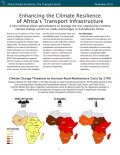
Roads are a key asset for Africa - they connect villages to economic centers, people to hospitals, children to schools and goods to markets facilitating trade. This study considered 2.8 million km of roads in Sub-Saharan Africa, including new road construction outlined in the Programme for Infrastructure Development in Africa (PIDA) and assessed the impact of climate change on roads and bridges. Climate change is expected to substantially increase disruption time of the network, shorten their rehabilitation life-cycle, and increase repair and rehabilitation costs. The study evaluates the economics of engineering solutions to build resilience to climate change impacts due to flooding, precipitation, and temperature and develops a methodology to assist decision makers in identifying the most cost-effective adaptation approach, comparing the cost of inaction (reactive response) to the net cost of investments in adaptation (proactive adaptation).
Key Messages:
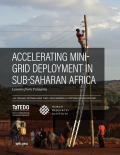
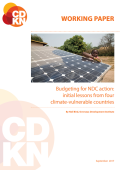
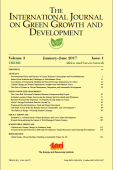
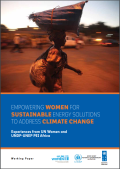
Africa has enormous potential for clean energy, given its ample resources of hydro, solar, wind and geothermal power. However, current highly centralized energy systems often benefit the rich and bypass the poor. On the other hand, decentralized renewable energy systems offer a great opportunity for women’s empowerment. As these are deployed at the local level, women are more likely to participate in related decision-making and be involved in the energy value chain.
